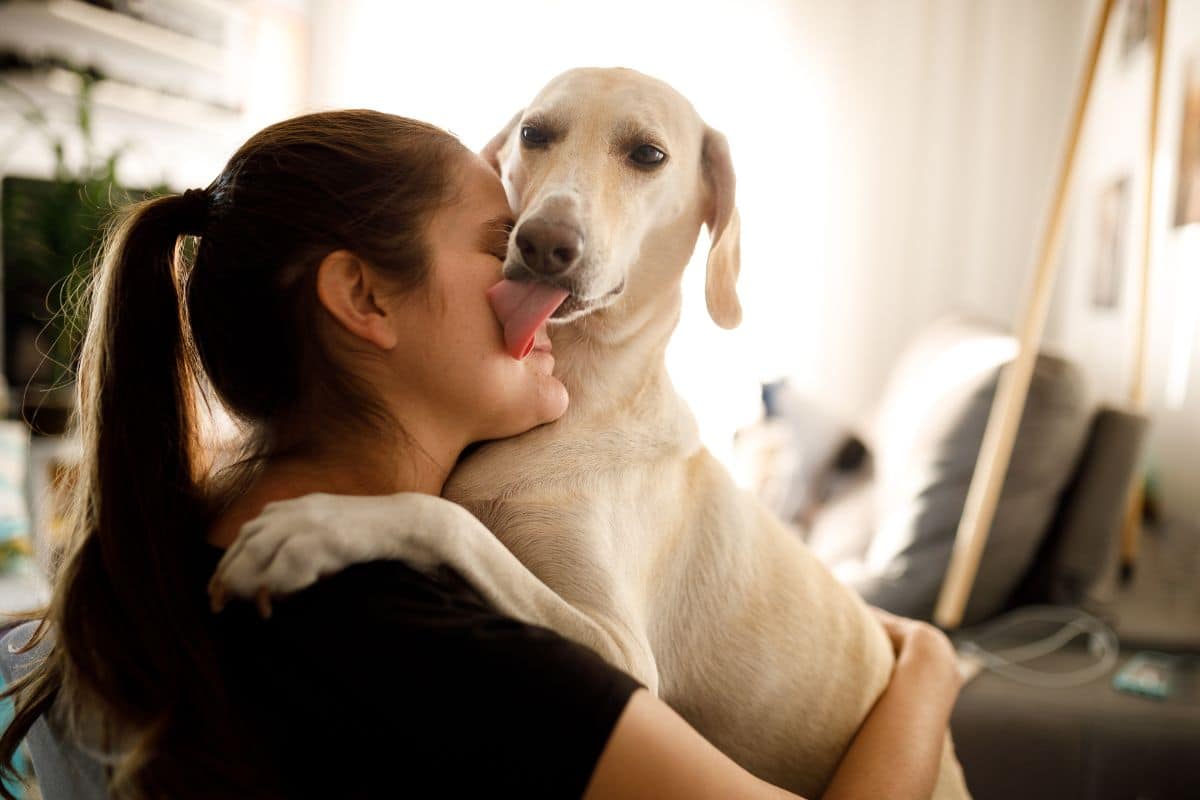Understanding Why Dogs Lick You?

Ever wondered why your furry companion showers you with slobbery kisses? Discover the heartwarming reasons behind your dog's endearing licks and deepen your understanding of your canine’s needs.
Reasons Why Your Dog May Lick You
1. The Natural Instinct of Licking
Dogs, as descendants of wolves, have retained the instinct of licking. This primal behavior stems from their wild ancestors, who licked each other as a means of communication and bonding. Today, dogs use this ingrained behavior to express love and devotion to their human companions.
2. Expression of Affection
When your dog licks you, it's an unmistakable sign of affection. This delightful gesture triggers the release of oxytocin in both you and your canine friend, promoting a sense of happiness and attachment. Embrace the heartwarming connection your furry buddy shares with you through their affectionate licks.
3. Seeking Attention and Interaction
Licking is a clever way for dogs to get your attention and initiate interaction. By responding to their licks, you reinforce their behavior positively, encouraging a stronger bond. However, be cautious not to overindulge their attention-seeking behavior to maintain a healthy balance.
4. Stress Relief and Comfort
In stressful situations, dogs resort to licking as a form of self-soothing. This act calms their nerves and provides comfort in times of anxiety or unease. While it's natural for dogs to seek relief through licking, be mindful of potential compulsive tendencies that may need professional attention.
5. Gathering Information
Dogs perceive the world through their sense of taste, and licking is one of the ways they gather information. From exploring their environment to understanding social dynamics, licking serves as an essential tool for your canine friend to navigate the world around them.
Additional Considerations About Licking
Addressing Compulsive Licking
Compulsive licking, characterized by excessive and repetitive licking, can be a sign of underlying stress or anxiety in dogs. If your pet displays such behavior, consider seeking guidance from professional trainers or behaviorists to identify and address the root cause.
Cultural and Breed Variations
The significance and acceptance of dog licking vary across cultures. Some cultures view licking as a symbol of love and respect, while others may consider it impolite. Additionally, different dog breeds exhibit distinct licking tendencies, which can be influenced by their genetics and socialization.
Setting Boundaries
While dog licks are generally affectionate, it's essential to set boundaries to ensure a balanced relationship. Train your dog to understand when licking is appropriate and when it's not. Communicate your preferences calmly and consistently to maintain a respectful connection.
Frequently Asked Questions
While your dog's saliva has natural antibacterial properties, it's best to avoid letting them lick your face to prevent the transmission of bacteria and potential health risks.
Excessive licking of objects might indicate anxiety, boredom, or discomfort. Observe your dog's behavior and consult a professional if needed.
Training and positive reinforcement can help curb excessive licking. Create a designated space for your dog during guest visits to minimize overexcitement.
Licking during playtime is a social behavior that promotes bonding and communication between dogs.
Yes, compulsive licking can be a manifestation of stress or anxiety, and it's essential to address the underlying cause.
While it's challenging to completely eliminate licking, you can train your dog to control the behavior and respect your boundaries.
Excessive licking can lead to skin irritation and potential infections. Regularly check your dog's skin and consult a veterinarian if you notice any issues.
If your dog's licking becomes excessive, interferes with daily activities, or is accompanied by other concerning behaviors, consult a professional for guidance.
Dogs instinctively lick their wounds as a form of self-soothing, but excessive licking may hinder healing. Use protective measures, such as a cone collar, to prevent excessive licking.
 Author - Joseph Schifano
Author - Joseph Schifano
Joseph Schifano is the owner and President of The Academy of Pet Careers. With over 20 years of experience working in the pet field, managing large scale pet care businesses, he has experience in every facet of the industry. Joseph's focus is primarily on the business of pet care but his passion is in understanding animal behavior how a dog's brain works so we can improve the care we provide as pet professionals. He is a huge advocate for Pet Empowerment and Force Free training methods. Read more in Joseph's full bio.
